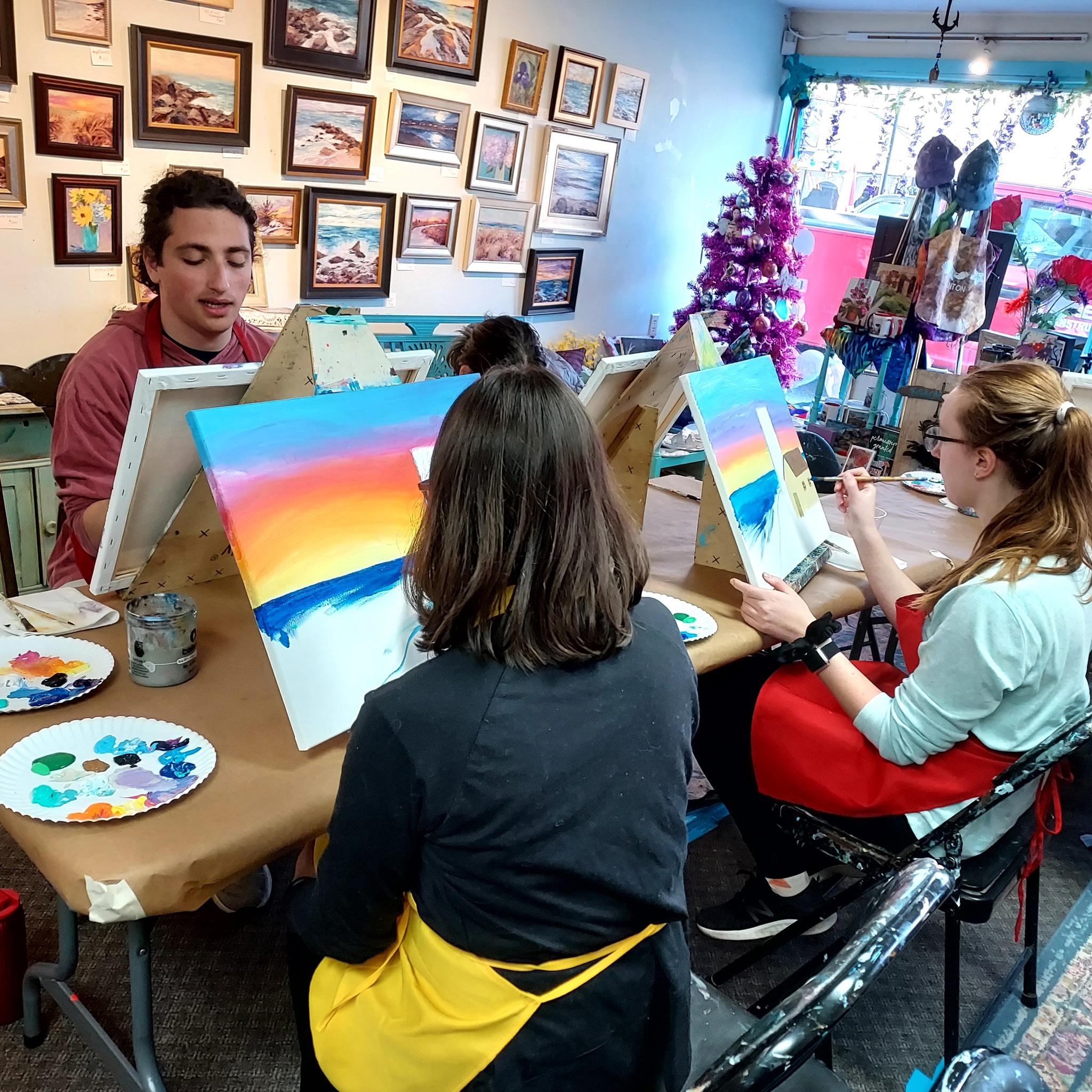
3 minute read
Making A Difference
Clinton Go brings together resources to help disconnected youth
For most people, it would be no surprise to hear that young people are struggling these days with mental health issues. For a youth of 16 today, their entire adolescence so far has been defined by the uncertainty of a global pandemic, and their future is marked by an uncertain economic future. If we take these points at face value, the question is what role can a municipality play in helping them? The Town of Clinton helped to create a committee called Clinton Go, which aims to foster the growing disconnect in our youth.
Clinton Go is a committee that is aimed at young people from ages 17 to 25, provides courses on life skills such as painting, mock college interviews, tax preparation, and cooking and community-based social activities like trivia and thrifting for vintage clothes. Run by 12 volunteers, it was born out of a previous community group called “Community Conversations,” which itself was started to address the town’s troubling youth suicide rate.
From those discussions, Clinton Go was charged with identifying the at-risk youth, and in two focus groups, the message was clear— these kids wanted to socialize with their peers. A common theme now, disconnection cannot be solely blamed on one facet or another, but is the culmination of several factors that include social media and the pandemic.
One volunteer, Chris Carlisle, has a personal connection to the effects of youth disconnection—he lost his son to suicide just five years ago. He told Zip06 that he’s turned his grief into action, to help other young people who might be feeling this way.
Unfortunately, this is an all-toocommon problem for youth, and in particular, the town of Clinton.
According to a study conducted by the University of Connecticut, Clinton Public Schools had the highest suicide rate in the state.
Bringing people together is part of both the healing process and the path to a healthier future for young people struggling with disconnection. While this program is aimed at young people dealing with mental health issues, it’s not exclusive to this group. The courses and activities are open to any and all who may want to join them, and it gets local businesses involved as well. Many of the programs are sponsored by Clinton Family Services, but the thrift store Fringe, Guilford Savings Bank, Cindy Stevens Fine Art and Mary Culinary Classes are all doing their part to give back to the community.
And that is what so much of this issue is about. Bringing people together is the opposite of disconnection. Especially during the pandemic, social isolation was a real struggle. Even now, when many of the precautionary actions—distancing, masking—are gone, many young people did not stretch their social muscles for years during crucial developmental stages. Clinton Go shows that it is never too late to get out there, to connect. The success of the program is shown in the fact that it is growing, bringing on new partners and events, and never giving up hope that someone in need will be reached. Or as one committee member, Andrea Reu, told us, “We know the work we do makes a difference. That’s why we do it.”










